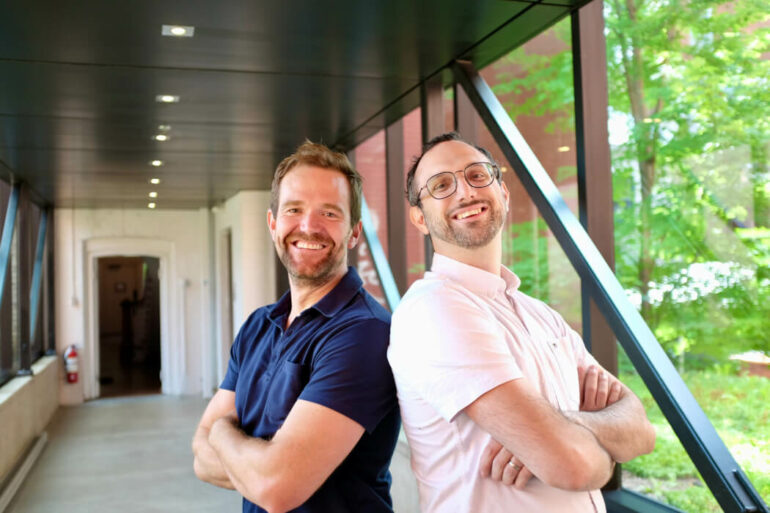Led by a team with a decade of experience building artificial intelligence (AI) and deep technology products, Montréal-based HumanFirst aims to “make working with natural language data natural.”
HumanFirst has closed $5 million CAD in seed funding to date. The startup has secured this amount via three smaller, simple agreement for future equity (SAFE) rounds over an unspecified period of time. HumanFirst declined to disclose to BetaKit when exactly these rounds closed, noting only that it secured the most recent one a few months ago.
Citing the team’s AI expertise, Panache partner Scott Loong believes HumanFirst is “well-positioned” to help enterprises optimize their data.
Per HumanFirst, Panache Ventures led the financing, which also saw participation from Inovia Capital, Real Ventures, BoxOne Ventures, and angels including Kevin Mahaffey.
“Enterprise companies continually accumulate large volumes of conversational data from call centres, chatbots, emails, feedback, and more—ideal for identifying rich business insights,” HumanFirst co-founder and CEO Gregory Whiteside told BetaKit. But according to Whiteside, that conversational data is typically difficult to understand and make useful.
HumanFirst aims to help change that with its low-code “natural language data productivity suite,” which is designed to help companies turn that data into business insights and custom AI more easily and cost-effectively.
“HumanFirst’s data-centric approach to simplifying and improving AI models for both technical and non-technical users is unprecedented,” Panache Ventures partner Scott Loong said in a statement. “Their technology allows enterprises to discover and operationalize business and customer insights in ways that have not been possible before with scaling conversational datasets.”
Founded in 2017 by Whiteside and CTO Mathieu Rene—who both previously worked at Intel and PasswordBox—HumanFirst initially focused on using AI to predict and automate the response shortcuts that human chat agents need. But initial customer feedback indicated that companies cared less about speed and more about the quality of responses.
RELATED: Cohere secures strategic investment from SAP as enterprise demand for generative AI grows
Speaking to HumanFirst’s shift in focus to what it does today, Whiteside noted, “HumanFirst has been on a winding road to figure out how we can best help our customers and realized that many companies were using Excel spreadsheets and manual processes to develop and scale custom AI.”
“This really led us to what we are building now—better utilizing scaling datasets to unlock insights, AI and enhanced customer experiences,” Whiteside added.
To date, HumanFirst has amassed a list of enterprise customers that includes banks, call centres, and last-mile delivery firm Intelcom.
“We’ve been a bunch of engineers solely focused on the product and cracking enterprise sales—and now we’re gearing up to scale the business and our [go-to-market] team,” said Whiteside.
RELATED: Shakudo closes $9.5-million CAD Series A to help companies adopt generative AI
Citing Whiteside’s and the HumanFirst team’s AI expertise, Loong added that he believes HumanFirst is “well-positioned” to help enterprises optimize their data.
As the broader venture capital market has cooled, investment in AI-related companies has picked up. Between recent raises by more established AI firms like BenchSci and MindBridge to funding rounds for emerging startups like Shakudo and Reworkd alike, the sector has been a bright spot amid the economic downturn.
HumanFirst plans to use this capital to expand its product offering with more functionality in large language model (LLM) and prompt engineering and add more customers. To get there, the company intends to double the size of its 15-person team by 2024.
“The AI landscape continues to evolve and we are happy to be in a position to help companies stay on top of it,” said Whiteside. “LLMs like ChatGPT and PaLM2 are accelerating the data gap: teams now need to understand not only the data going into these models, but the data going out as well.”
UPDATE (07/26/23): This story has been updated to include responses from HumanFirst’s Gregory Whiteside.
Feature image courtesy HumanFirst.


